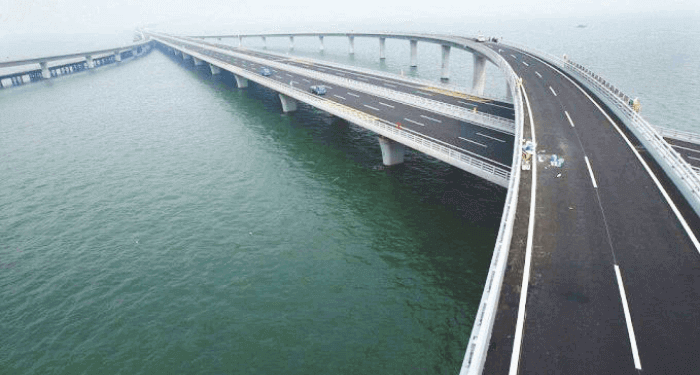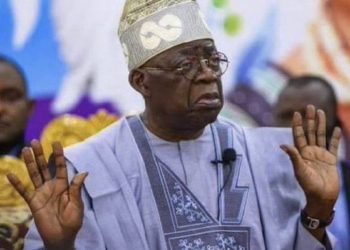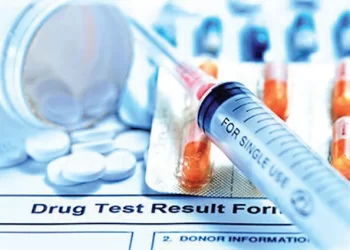Almost two decades after the Lagos State government promised to construct a 38-kilometre Fourth Mainland Bridge, it is understandable that Lagosians remain expectant about the huge project. The project has remained on paper for nearly 20 years. A proposal for the project was made in 2006, while construction was to begin in 2017, and was to be completed in 2019. But the bridge has not materialised in 2025 despite several assurances. Whatever is worth doing is worth doing well and in good time, especially when economic variables do not remain static. Between the time the project was conceived and now, the Naira has lost value significantly. That will have a tremendous impact on costs.
There is no doubt that the government faces huge challenges on the project, given its magnitude, cost and numerous logistics. Lagos State government had in 2015 attributed the delay in the construction of the bridge to issues around compensation, because of the number of buildings along the right of way, and had to redesign the route to avoid compensations running into billions.
According to Aramide Adeyoye, a former Special Adviser on Works to Governor Babajide Sanwo-Olu, about 800 structures would be affected by the construction of the bridge.
But other significant progress made on the project had been stalled. In May 2016, former Governor Akinwunmi Ambode signed a Memorandum of Understanding (MoU) with a consortium of firms and finance houses comprising Africa Finance Corporation (AFC) and Access Bank, Julius Berger Nigeria Plc, Nigerian Westminster Dredging and Marine, J.P. Morgan, Hi-tech Construction Limited, Eldorado Nigeria Limited, and Visible Asset Limited.
However, the government announced in May 2017 that the deal had been cancelled, citing the delay by the consortium to kick-start the project as the reason for its decision.
At another time, the government, through the Deputy Governor, Obafemi Hamzat, expressed worry about the escalating cost. “The challenge is that the cost is outrageous. It’s just a bit too high,” he explained, stressing the financial prudence required in light of the current economic conditions. Lagos later secured a partnership deal with the African Export-Import Bank and Access Bank for an investment of $1.352 billion in the state, meant to cover the bridge’s cost.
Nevertheless, the state government, according to the deputy governor, faces a crucial decision about whether to proceed with the bridge project now or prioritise other ongoing infrastructure developments. The government is strategically assessing the immediate and long-term benefits of the Fourth Mainland Bridge against other critical infrastructure projects. Governor Sanwo-Olu has emphasized the importance of the bridge in alleviating traffic congestion and fostering economic growth by linking key areas of Lagos. However, the administration also recognises the need to balance this with the completion of other vital projects that are already underway.
In December 2022, the Chinese CCECC-CRCCIG Consortium was announced as the preferred bidder, during which Governor Babajide Sanwo-Olu promised that the construction was now to commence in early 2023. That date later shifted to March 2024. As of today, the flag-off ceremony has not taken place, casting doubts in the governor’s promise to deliver the project during his second term in office. Halfway into his second term, there are no signs that the promise will be kept.
Lagosians are expectant and concerned that a lofty project that promises immense developmental benefits has not been lifted off the drawing board. The ambitious project was advertised as the state’s next major transformative infrastructure, designed as an alternative route to connect Lagos Island, Baiyeku (Ikorodu), Langbasa (Lekki), and other areas of the mainland. It is to be a state-of-the-art tolled corridor manned with three toll plazas, nine interchanges, and a 4.5-kilometer lagoon crossing, expected to be Africa’s second-longest bridge. The transport infrastructure is programmed to open up new residential areas, reduce travel time with a four-lane, two-way carriageway. It will connect the Lagos-Ibadan highway, serving as a bypass away from inner city congestion. It will come with facilities for a BRT lane and future road expansion.
The bridge is to be executed under a Design, Build, Finance, Operate, Maintain and Transfer (D-B-F-O-M-T) arrangement, with Lagos State Government, African Export-Import Bank, Access Bank and others, securing the funding. In 2017, it was reported that an initial N844 billion was set aside for it. The government should know that the cost of construction would rise and variations would be made to the initial estimates. With the amalgam of financial institutions that have signed on to the project, funding doesn’t appear to be the snag.
And for that reason, the partners need to be encouraged to avoid further delay as the rate of inflation in the country is still prohibitive. Besides, the advantages of another bridge to complement the Eko, Carter and Third Mainland bridges are too attractive and immeasurable. The Fourth Mainland Bridge should get started.
For Governor Sanwo-Olu, let there be no going back on the promise to deliver the bridge. In January 2024, he told the gathering at the Lagos West Senatorial District Town Hall Meeting at the Balmoral Convention Centre, Sheraton, Ikeja, that construction would begin by “the end of March or April” of that year. He also assured property owners along the route that they would be compensated if affected.
Transparency and promptness are recommended in the execution of the project and stakeholders should be carried along to avoid legal hitches along the way. Nigerians are aware that initial studies had been carried out and commitments/agreements made way back to 2016. On the occasion of Sanwo-Olu’s 60th birthday, President Tinubu had urged him to sustain his exemplary vision in transforming Lagos by prioritising impactful projects for Lagosians, notably the long-awaited Fourth Mainland Bridge and the Freedom Way to Victoria Garden City (VGC).
Nigerians, especially the people of Lagos, align with the President to urge the governor not to slow down. It will be to his eternal credit if he pulls off the project during his tenure as governor. The people of Lagos State will remember him as the one who consummated the project. But time is of the essence and delay is always dangerous.
















































